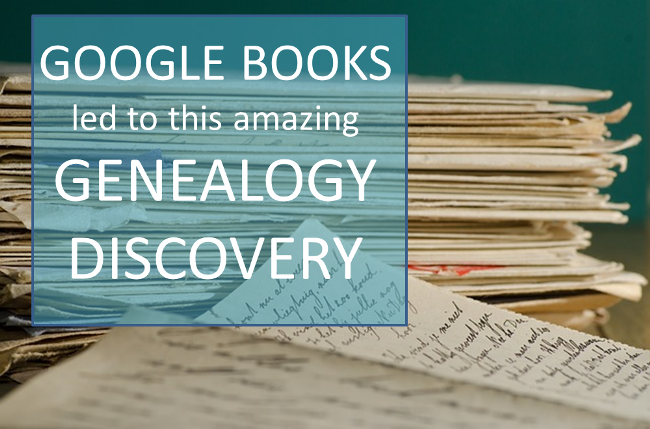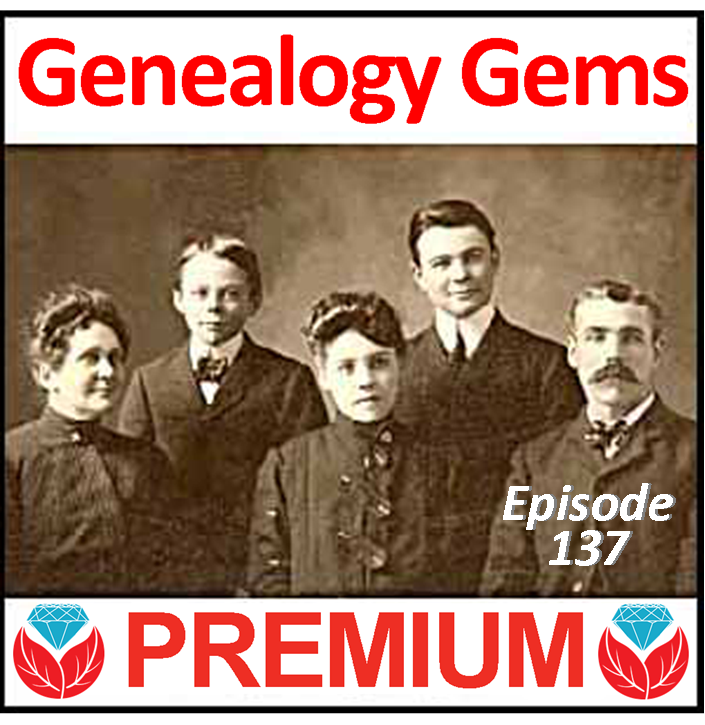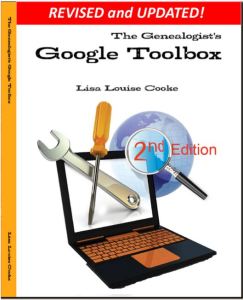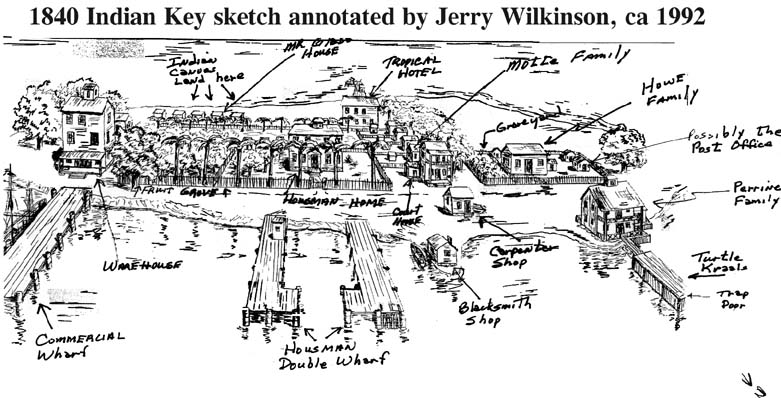by Lisa Cooke | Oct 10, 2016 | 01 What's New, Google
Using Google Books for genealogy is a successful tool to many. A Gem’s reader shares the remarkable story she uncovered using the tips for using Google Books she learned from a recent Genealogy Gems Premium podcast.

From Genealogy Gems Premium member:
“Hi Lisa,
 I was just listening to the newest Premium podcast concerning filtering the lists on Google Books (Premium episode 137). I would like to relay my story for using your hints and tips on Google.
I was just listening to the newest Premium podcast concerning filtering the lists on Google Books (Premium episode 137). I would like to relay my story for using your hints and tips on Google.
My great-grandfather was a Confederate soldier. At the age of 48, he married my great-grandmother and my grandmother was born the next year. I found much to my dismay, that he committed suicide when my grandmother was a few weeks old. It was stated that he had what would be described today as post-traumatic stress disorder, and the burning of the court house where he worked as a county clerk set off something. My Dad was born on what would have been my great-grandfather’s 90th birthday.
I have known for about 30 years that my great-grandfather wrote articles under a pen name. My aunt told me she had been told he wrote articles about the scenery in southern Utah where he lived. I searched and searched and never found any of his articles. Then, I had a breakthrough. I found the pen name by using several tips you mentioned for using Google. The pen name was Lock Melone. It was spelled differently than I had been told.
It turns out, he was a very well-known humorist. One of his stories appears in a publication alongside an article by Mark Twain. (He wrote articles in the 1870s and 1880s.)
Now, back to your tips on Google. I was Googling, checking all the old newspapers I could find to collect his writings. One of the sources continually mentioned in Google Books was a literary magazine called The Californian. These were not all free on Google, but I was not to be deterred after all these years! I used the basic information and time frames listed in Google Books and looked at WorldCat. That led me to e-books and to some of the holdings in universities around the country.
As of today, I have found 69 of his articles! They have made an ancestor who I thought had a rough life with a tragic end, a new person, full of life and laughter! I am sure his stories are based on events that occurred during his “real life” adventures. He lived life to the fullest, traveling a great deal, and saw the world through a light heart.
I am continuing to search for more articles and have begun to compile his writings to give to my children and cousins for a Christmas present this year (if I can figure out how to put it all together!) With my grandmother as his only child, I will have given his life to all his descendants, a very special chore on which I have worked on with great pleasure.
Thanks for the tips on Google and other sites you have given over the years.”
This Gems member is certainly on the right track in many ways. She figured out how to harness the power of Google to search for the proverbial needle in a haystack—not just her grandfather’s articles but articles written under a pseudonym! Good for her for using Google Books and WorldCat. That’s a great combination. You can learn more about using WorldCat for genealogy in my book How to Find Your Family History in Newspapers and in the Premium video Getting the Scoop Part 2: Tech Tools for Newspapers.
Follow-up Ideas for Using Google Books for Genealogy
Here are a few follow-up suggestions re lating to finding issues of a literary magazine or another scholarly publication like The Californian:
lating to finding issues of a literary magazine or another scholarly publication like The Californian:
First, turn to another powerful free tool in the Google toolbox: Google Scholar. It takes Google Books to the next level and you may hit on some things that Google Books may miss. Refer back to Premium Podcast 136 for a discussion of Google Scholar for genealogy, and Chapter 11 in my book The Genealogist’s Google Toolbox, Second Edition.
Second, remember that sometimes serial publications change names, or two different ones may have the same name. Wikipedia’s not the most expert source, but its article on The Californian says something you can follow up on. The Californian was published from 1880 to 1882, as a continuation of the earlier Overland Monthly which had stopped in 1875, and then in 1882 it switched back to its old name. This means you should look for both titles.
A third idea may be to check e-bay for back issues of old magazines and journals. Sometimes, it’s cheaper and easier to buy them than to try to borrow them through inter-library loan. E-bay does happen to have a CD version for sale of The Californian issues from 1880 to 1882. I talk more about finding family history items on e-bay in the Premium Podcast episodes 16, 76, and 131.
Lastly, don’t forget JSTOR. JSTOR is a shared digital library for scholarly journals and the like. It launched in 1995 to serve university and college libraries, running out of space to store old journal issues. Today, it includes over 2,300 journals and thousands of other materials. It’s even started including books. Over 50 million pages are digitized, with another 3 million being added every year.
The nice thing about JSTOR is that you don’t have to be affiliated with a major library to get access now. Individuals can register for free access allowing them to read some materials online. They offer free access to their Early Journal Content collection of scholarly content published before 1923 in the U.S. (and before 1870 in other parts of the world.) That collection alone has nearly a half million articles from over 200 journals.
Unfortunately in this case, JSTOR doesn’t have The Californian or Overland Monthly in its collections. But one can certainly use JSTOR to search for other journals. JSTOR is just a great resource for anyone to use when searching for historical articles, especially those you may come across in Google Scholar without the full article text.
Your Google Books for Genealogy Success Stories
It is so rewarding to hear your success stories in using Google Books for genealogy. Your stories inspire others. Please feel free to share your experiences in the comment section below.
Keep Reading: More Gems on Using Google Books for Genealogy Success
Free Video: Google Books Image Search for Genealogy and Family History
Google Scholar for Genealogy? Here’s Why to Try It
by Lisa Cooke | Apr 8, 2015 | 01 What's New, Google, Research Skills
This just in! Google Scholar and ProQuest are teaming up to provide a publicly-accessible index to all of ProQuest’s scholarly journal content. Google Scholar already delivers search results on your favorite genealogy keywords (names, places and records) from scholarly publications like dissertations, academic articles and more. (Click here to read my blog post about Google Scholar for genealogy.)
just in! Google Scholar and ProQuest are teaming up to provide a publicly-accessible index to all of ProQuest’s scholarly journal content. Google Scholar already delivers search results on your favorite genealogy keywords (names, places and records) from scholarly publications like dissertations, academic articles and more. (Click here to read my blog post about Google Scholar for genealogy.)
Now the search experience will become more powerful and inclusive. According to a press release, “ProQuest will enable the full text of its scholarly journal content to be indexed in Google Scholar, improving research outcomes. Work is underway and the company anticipates that by the third-quarter of 2015, users starting their research in Google Scholar will be able to access scholarly content via ProQuest.”
“ProQuest has rich, vast content that advances the work of researchers, scholars and students,” blogged the CEO of ProQuest. “Respecting the different ways researchers and librarians choose to conduct their research is essential to ensuring that content is simple to discover and use. We know Google Scholar is a popular starting point for researchers of all kinds. Our teamwork with Google will enable these patrons to be automatically recognized as authenticated ProQuest users and seamlessly link to their ProQuest collections, where they can connect with full-text scholarly content.”
It appears that there will still be a charge to access copyright-protected material (“authenticated ProQuest users” in the quote above are those that have access via a ProQuest subscription). According to the press release, “Users who are not recognized will be sent to a landing page with the abstract or an image of the first page, protecting all rights holders. To read full text, the users will authenticate themselves. There is nothing for libraries to set up – the linking will be seamless and automatic.”
 Learn more about using Google Scholar and other advance Google search techniques to discover your family history online in The Genealogist’s Google Toolbox Second Edition. The newly-updated and fully-revised book is available now!
Learn more about using Google Scholar and other advance Google search techniques to discover your family history online in The Genealogist’s Google Toolbox Second Edition. The newly-updated and fully-revised book is available now!
by Lisa Cooke | Mar 19, 2015 | 01 What's New, Google, Google Earth
Who Googles? How often? How is that changing? Keep reading to see a new infographic with some fabulous statistics–and you’re in it.
If you’re reading this post, you’re among the 30% of the world’s population who uses the internet. But where else do you show up below? Among the grad students who nearly all think “research” means “Googling it?” (My elementary school-age children agree.) Where does your age group fall in search engine use? Are you a Google-r, a Bing-er, or a more rare something-else-searcher?
Finally, which Google tools are YOU using for genealogy? Click the phrases below to learn more here at Genealogy Gems about using Google for Genealogy:
Google Scholar
Google Cache
Google Alerts
Google Earth
Find our genealogy education videos on the Genealogy Gems YouTube channel. And–best yet–click here to purchase The Genealogist’s Google Toolbox, the powerful, fully-updated-for-2015 book that teaches you to use ALL of these, including Google Earth, Google search and advanced search and Google books.

Source: GradSchoolHub.com
by Lisa Cooke | Mar 4, 2015 | 01 What's New, Google, Listeners & Readers, Maps, Records & databases, Research Skills
 Recently I heard from Sue Neale, whose story offers a compelling reason to use Google Scholar for genealogy research! Read it below–then I’ll tell you a little more about Google Scholar.
Recently I heard from Sue Neale, whose story offers a compelling reason to use Google Scholar for genealogy research! Read it below–then I’ll tell you a little more about Google Scholar.
“I’ve been using computers for genealogy research (among other things) for about 30 years and am pretty good at finding most anything on the internet whether it pertains to genealogy or something else. It’s a continuous learning experience because computer, the internet and genealogy on the internet are always changing and updating.
[After hearing your seminars at RootsTech 2015], I tried out a couple of Google searches for my husband’s 3rd great-grandfather Silas Fletcher. Silas lived on Indian Key in the Florida Keys in the early 1820s.
My husband and I and our son visited Indian Key several years ago and the young lady who took us out in the boat had actually written her college thesis on Silas! Of course, we didn’t think to get her name or any other information. So I Googled “scholar paper Silas Fletcher’ and the first item on the search turned out to be her thesis!
I also found a second thesis on Indian Key and a research paper a third person had written–and they both contained information on Silas. In the footnotes I found references to deed books (book number and page number) that contained statements written by Silas, his wife Avis, their daughter Abigail and Mike’s 2nd great grandfather William H. Fletcher about their lives and movements in the Florida Keys.
With that information I went to Familysearch.org and found the deed books I needed for Monroe County. I was able to go find their statements very easily instead of having to ‘browse’ through the books on the off-chance I would find something (which I do if I don’t know the exact book where the record would be).
I can hardly wait to try out the rest of what I learned at your seminars to see what else I can find!”
Sue’s experience is a great example of using Google to dig for your family history. One little-known feature on Google is Google Scholar, which would help Sue and anyone else more easily find material like what she describes: doctoral dissertations, theses, academic papers and more. Your keyword searches in Google Scholar will target results from academic publishers, universities, professional societies and more.

Though scholarly literature gets a bad rap sometimes for being boring or highbrow, they do something genealogists love: THEY CITE SOURCES. Sue cleverly read the footnotes of the materials she found and they led her right to a key source she needed.
Here’s another resource she could find using the details found on Google Scholar in a Google Image search: a map of his community!

My newly-updated, revised book The  Genealogist’s Google Toolbox has an all-new chapter on using Google Scholar. Among other things, I show you advanced search strategies and how to use Google Alerts with Google Scholar for continuous updates on your favorite search results. Click here
Genealogist’s Google Toolbox has an all-new chapter on using Google Scholar. Among other things, I show you advanced search strategies and how to use Google Alerts with Google Scholar for continuous updates on your favorite search results. Click here

 I was just listening to the newest Premium podcast concerning filtering the lists on Google Books (Premium episode 137). I would like to relay my story for using your hints and tips on Google.
I was just listening to the newest Premium podcast concerning filtering the lists on Google Books (Premium episode 137). I would like to relay my story for using your hints and tips on Google. lating to finding issues of a literary magazine or another scholarly publication like The Californian:
lating to finding issues of a literary magazine or another scholarly publication like The Californian:
 just in! Google Scholar and ProQuest are teaming up to provide a publicly-accessible index to all of ProQuest’s scholarly journal content. Google Scholar already delivers search results on your favorite genealogy keywords (names, places and records) from scholarly publications like dissertations, academic articles and more. (
just in! Google Scholar and ProQuest are teaming up to provide a publicly-accessible index to all of ProQuest’s scholarly journal content. Google Scholar already delivers search results on your favorite genealogy keywords (names, places and records) from scholarly publications like dissertations, academic articles and more. (

 Recently I heard from Sue Neale, whose story offers a compelling reason to use Google Scholar for genealogy research! Read it below–then I’ll tell you a little more about Google Scholar.
Recently I heard from Sue Neale, whose story offers a compelling reason to use Google Scholar for genealogy research! Read it below–then I’ll tell you a little more about Google Scholar.



